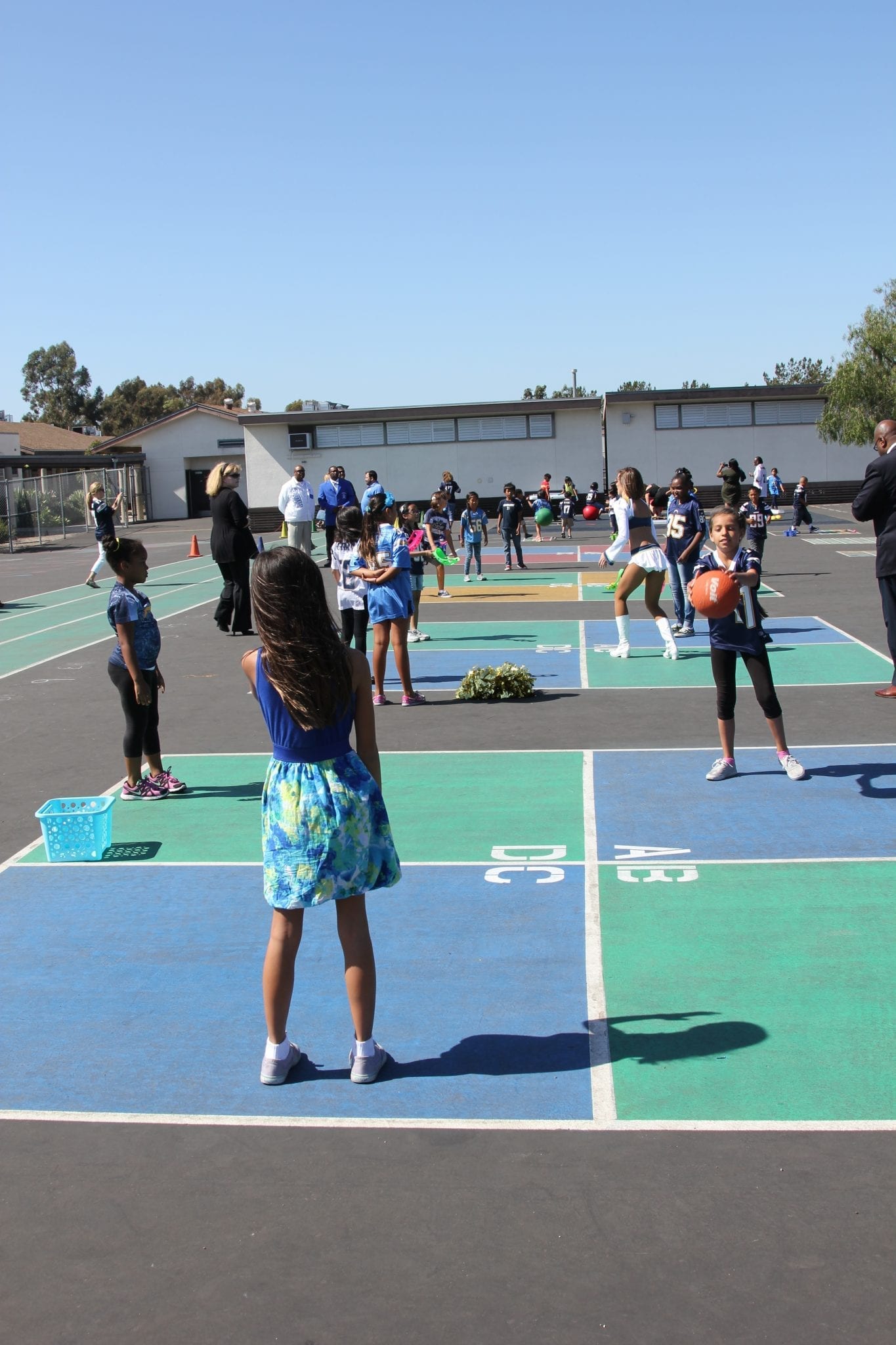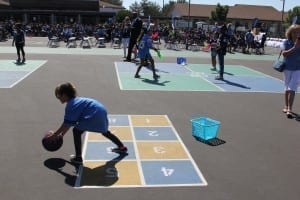Lakota school program aims for peace on the playgrounds
by Eric Schwartzberg
Journal News
Wyandot Early Childhood School recently implemented Peaceful Playgrounds, a research-based program that aims to teach students social skills and show staff how to organize the playground to reduce bullying, conflicts, and injuries.
Developed by a longtime teacher and principal Melinda Bossenmeyer of Los Angeles, the concept features more physical activity, which she said is “a much-needed intervention for the childhood obesity problem sweeping the nation.”
Students alternate each day between “Mulch Days” on the playground and “Blacktop Days” on a bus lot that now features more than two dozen games and activities created via colorful, strategically-spaced numbers, letter grids, and geometric shapes.
“We’re giving a few a try and we’ll continue to add things as we understand what the children want to use,” said Principal Mary Brophy.
The Peaceful Playgrounds program, which can be found in more than 8,000 schools nationwide, is financially supported by Wyandot’s PTO, Brophy said. Volunteers helped paint the lot this summer and staffers received training at the start of the school year, she said.
The program also presents students with various options for working out disagreements, freeing up instructional aides Lillian Carpenter and Barbara Apland to look after the safety of all those on the playground.
Each recess finds students with the same supervisor, listening attentively when they hear “1, 2, 3, eyes on me!” or “Stop, freeze Hands on knees!”
“Even though they’re not their classroom teacher, they get to know the relationship of the classes and the dynamics of the children,” Brophy said. “We feel like that relationship building is key to knowing who’s going to interact and how they’re going to interact.”
Carpenter said the program gives students more to do.
“We bring different things out at different times .. so it gives a variety of different things to do and they don’t get bored with the same thing over and over again,” she said.
That’s meant children sharing more and playing better together after learning the rules, according to the instructional aides.
“The children get along better,” Apland said. “We see less conflict with them and fewer arguments. We try to work on them resolving their conflicts themselves if they can before they come to a teacher.”
First-grader and tag fan Rocco Nasca gave a thumbs up to the new setup.
“It’s better because I like to run,” he said.


 DAYTON, OHIO – A local elementary school is working to smooth over the rough-and-tumble aspects of the recess with the Peaceful Playgrounds Program.
DAYTON, OHIO – A local elementary school is working to smooth over the rough-and-tumble aspects of the recess with the Peaceful Playgrounds Program.
